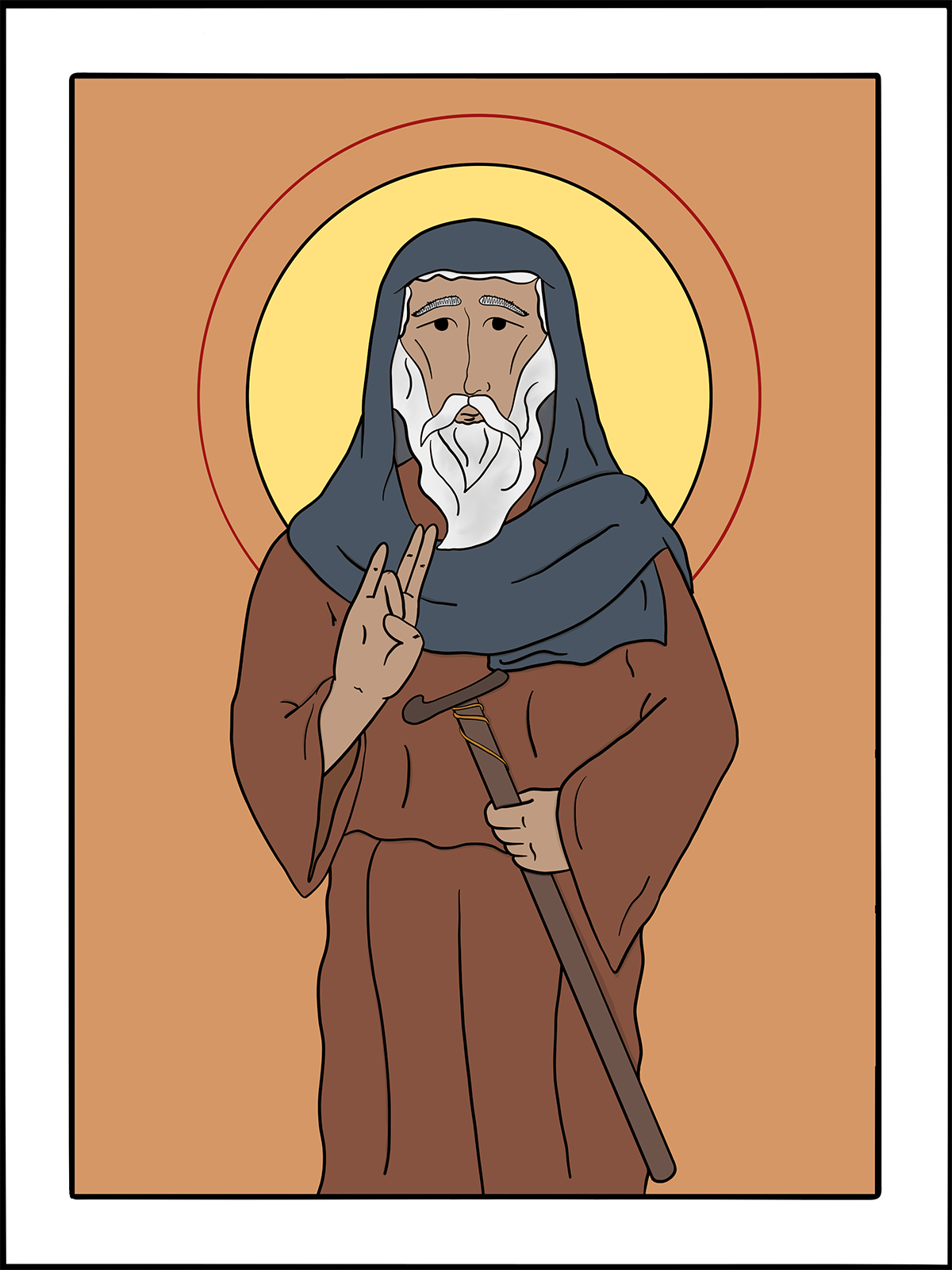
January 17
Antony of Egypt
Monastic, 356
art by Rev. Kirsten Kohr of Uhrichsville, OhioO God, as you by your Holy Spirit enabled your servant Antony to withstand the temptations of the world, the flesh, and the devil, so give us grace, with pure hearts and minds, to follow you, the only God; through Jesus Christ our Lord, who lives and reigns with you and the Holy Spirit, one God, for ever and ever. Amen.
In the third century, many Christians turned away from the corrupt and decadent society of the time and went to live in deserts or on mountains, in solitude, fasting, and prayer. Antony of Egypt was an outstanding example of this early monastic movement, but he was not merely a recluse. He is traditionally regarded as the founder of Christian monasticism because of his role as an inspirational teacher and guide, which spread the popularity of the new monastic movement considerably.
Antony’s parents were Christians, and he grew up to be thoughtful, devout, and introspective. When his parents died, he and his younger sister were left alone to care for a sizable estate. Six months later, while attending church, he heard the reading about the rich young man whom Christ directed to sell all that he had and give to the poor. Hearing his own call from God through this scripture, Antony at once gave his land to the villagers and sold most of his goods, giving the proceeds to the poor.
Later, after meditating on Christ’s exhortation, “Do not be anxious about tomorrow,” he sold what remained of his possessions, placed his sister in a “house of virgins,” and became an anchorite (solitary ascetic). The vocational path taken by Antony’s sister is one of many indications that, although Antony has traditionally been known as the founder of monasticism, some forms of urban monastic life (particularly for women) existed even before his call to undertake a monastic vocation in the solitude of the desert.
Athanasius, whose work The Life of Antony quickly spread Antony’s fame far beyond Egypt, writes that Antony spent his days praying, reading, and doing manual labor. For a time, he was tormented by temptations and demons in various guises, but he resisted, and the demons fled. Moving to the mountains across the Nile from his village, Antony dwelt alone for twenty years. In 305, he left his cave and founded an early form of monastic communal life - a collection of cells inhabited by ascetics living under his guidance. Athanasius writes of such colonies: “Their cells, like tents, were filled with singing, fasting, praying, and working so that they might give alms, and they had love and peace with one another.”
Athanasius further said of Antony: “He was like a physician given by God to Egypt. For who met him grieving and did not go away rejoicing? Who came full of anger and was not turned to kindness?... What monk who had grown slack was not strengthened by coming to him? Who came troubled by doubts and failed to gain peace of mind?” Antony died in 356.
Excerpted directly from “Lesser Feasts and Fasts 2022,” p. 42-43.
Lessons and Psalm James 1:9-11
Psalm 91
Mark 10:17-22
Preface of a Saint (2)

